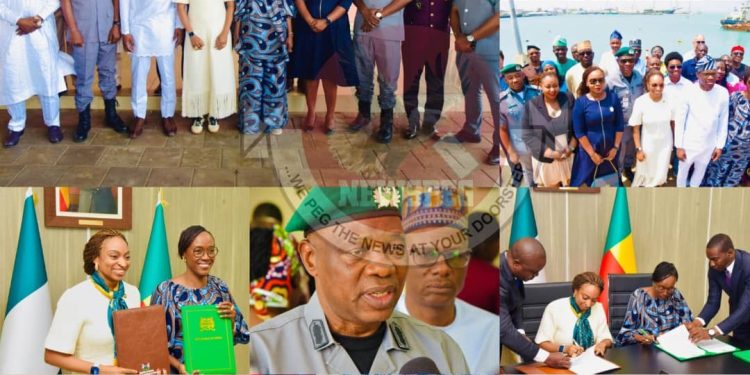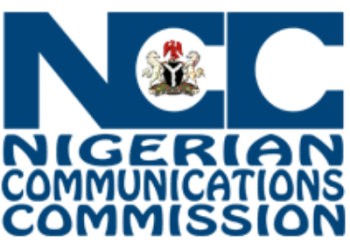…As CGC Adeniyi pledges seamless border operations, bilateral synergy gains momentum
By Nkechi Eze
In a landmark move to bolster regional economic integration and eliminate cross-border trade bottlenecks, Nigeria and the Republic of Benin have agreed on a comprehensive joint trade framework designed to facilitate seamless trade flows, boost investment, and promote shared prosperity across both nations.
The historic agreement was reached during a high-level bilateral meeting held on Saturday, August 2, 2025, at the Ministère de l’Économie et des Finances in Cotonou, Benin Republic. The event drew the participation of senior government officials, Customs chiefs, and trade development experts from both countries, united in their mission to chart a sustainable path for economic cooperation and inclusive growth.
Speaking at the meeting, Nigeria’s Minister of Industry, Trade and Investment, Mrs. Jumoke Oduwole, described the framework as a transformative milestone in West Africa’s regional trade architecture, anchored on political will, institutional cooperation, and forward-looking strategies.
“This agreement signals strong political will from both countries to pursue a progressive and inclusive trade relationship,” she declared. “It builds upon the preliminary Memorandum of Understanding signed by Presidents Bola Ahmed Tinubu and Patrice Talon during the West African Economic Summit, and reflects a deep resolve to convert political vision into practical, impactful outcomes.”
Mrs. Oduwole noted that the newly formed joint trade framework would be driven by four thematic working groups, focusing on trade facilitation, enforcement, data sharing, and infrastructure development. She underscored Nigeria’s broader ambition to evolve from a regional trade player into a global voice advocating for fair and inclusive trade systems.
“Our joint commitment is to dismantle barriers, improve logistics, and ensure that trade becomes a tool for job creation and regional prosperity,” she added, commending the synergy between the Heads of Customs of both nations.
Echoing the same optimism, the Comptroller-General of the Nigeria Customs Service, Adewale Adeniyi, MFR, affirmed that the Service remains fully committed to operationalising the agreement in alignment with Nigeria’s national trade goals.
“What we have witnessed today is the culmination of intensive technical meetings between Nigeria and Benin Customs officials over the past 48 hours. We’ve developed a joint framework that reflects our Presidents’ shared vision for economic growth,” CGC Adeniyi stated.
He disclosed that a formal Memorandum of Understanding, based on the agreed framework, is being finalised and will likely be signed in the first quarter of 2026. The CGC further revealed plans to implement corridor-based solutions to facilitate transit and transshipment trade, noting that these measures are designed to eliminate bureaucratic delays, particularly those impacting small and medium-sized enterprises.
“We’re committed to removing trade barriers that hinder local businesses. New trade corridors have been identified, and connectivity between our systems has already been activated,” he affirmed.
In his remarks, CGC Adeniyi also expressed deep appreciation to his Beninese counterpart, Mrs. Adidjatou Hassan Zanouvi, Director-General of Benin Customs, for her steadfast partnership and Benin Republic’s support for Nigeria’s leadership role at the World Customs Organisation (WCO) Council meeting in Kinshasa, Democratic Republic of Congo.
As part of the bilateral engagement, both delegations undertook a joint inspection tour of the Cotonou Port, where they assessed port operations and identified opportunities for infrastructure modernisation and digital transformation. The teams also visited the Seme-Krake Joint Border Post one of West Africa’s most strategic border points, signifying the shared resolve to strengthen coordinated border management and enhance the integrity of cross-border procedures.
The newly agreed framework marks a turning point in Nigeria-Benin trade relations, setting a foundation for transparency, technological integration, and mutual growth. Observers see the accord as a promising signal for other ECOWAS members to deepen cooperation and position West Africa as a unified trade bloc in the global economic arena.
















